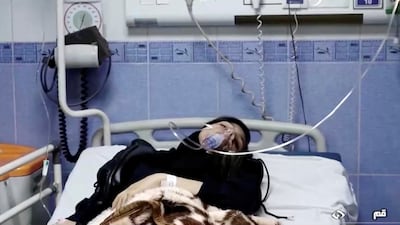Iran's most senior Sunni cleric has called for schools to be closed as poison attacks continue across the country, while authorities have accused protesters of being behind the incidents.
Molavi Abdolhamid, an imam and outspoken government critic from the southern city of Zahedan, said the poisonings were “probably from within the system” and called for schools to remain closed the “situation is clarified”.
“Ensuring the safety of students and schools is the responsibility of the government,” he wrote on Twitter.
Mr Abdolhamid said the government was unable to protect pupils and teachers, and describing the poisonings as a matter of public concern.
Officials investigating the poisonings have said more than 5,000 students have been affected in the nationwide attacks that were first reported in November, while Iran was in the middle of its fiercest anti-government protests in decades.
Activists and clerics such as Mr Abdolhamid suspect Tehran is behind the poisonings but the government has blamed protesters.
'Irritants' smuggled into school
The Interior Ministry said three of the five people arrested in connection with the attacks on Monday were connected to the protest movement, which Tehran has described as “riots”.
It also accused them of having links to foreign media outlets, a claim often levelled against protesters and critics of the regime, and said one used his child to smuggle “irritants” into their school.
Protesters continue to share footage of the aftermath of the attacks, showing mostly schoolgirls gasping for breath and coughing, as others seek medical attention.
Some said they had seen gas canisters thrown into schools but officials say the cause of the poisonings is “still unknown”.
Teachers and parents have protested against the attacks across Iran, including in the Kurdistan, Gilan and East Azerbaijan provinces and the capital, Tehran, according to the UK-based Iran International news channel.
Teachers gathered in front of the offices of the Education Ministry as they denounced the “child-killing government”. Several education inspectors and members of the teachers' union have reportedly been arrested.
More attacks have also been reported at Metro stations in Tehran, where pro-protest accounts have shared videos of passengers suffering from respiratory problems at several different locations.
Schoolgirls have been primarily affected by the poisonings, although cases have also been reported at universities and schools for boys.


